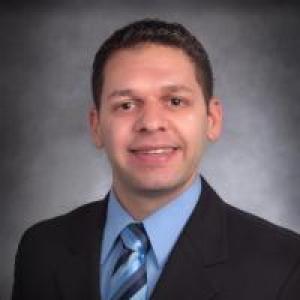
Member of the Duke Cancer Institute
Pirozzi's work thus far has been dedicated to studying brain tumors, particularly gliomas. During his research career, he has focused on identifying the common mutations present in gliomas and how these different mutations correlate with diagnoses and prognoses. To this end, he was involved in several publications that identified and stratified brain tumor patients based on their mutation spectrum. Pirozzi used these mutations as a foundation for animal modeling, leading to genetically faithful and biologically relevant systems that are applied to both basic research to understand the pathogenic nature of these mutations, as well as pre-clinical and translational research to understand how best to treat these tumors.
Pirozzi’s work in animal modeling and understanding mutant IDH1-mediated gliomagenesis has been recognized broadly, including at Duke University School of Medicine’s Clinical Research Day, at the annual Department of Pathology’s Retreat, as the recipient of the Robert and Barbara Bell Basic Science Cancer Research Award recognized at the Fifth Annual DCI Scientific Retreat, and as a Hope Funds for Cancer Research Postdoctoral Fellow.
He is currently working on using those mutations identified in the human genetic screens for immunotherapeutic purposes. Pirozzi has generated a series of orthotopic intracranial injection-based immune-competent animal models for which he is actively investigating the impact the mutations have on the tumor-immune microenvironment and whether the tumor-immune microenvironment can be manipulated to promote an anti-tumor response. Specifically, his most recently funded Department of Defense Idea Award with Special Focus entails understanding the impact mutant IDH1 is having on the Th17 T cell lineage and whether this can be exploited for therapeutic purposes.
Pirozzi contributed to the successful funding of several grants including a Duke Cancer Institute Cancer Research Pilot Grant as well as an R33, focusing on the identification and cloning of mutation-specific T cell receptors that could be used for adoptive transfer. Understanding the tumor-immune microenvironment and whether it can be manipulated to improve therapeutics or promote an anti-tumor immune response, and the identification of tumor-specific therapies that will avoid collateral damage to the sensitive brain are active lines of investigation. Additionally, he hopes to use his foundation in genetics, animal modeling, and the tumor-immune microenvironment to expand his research program into other cancers.